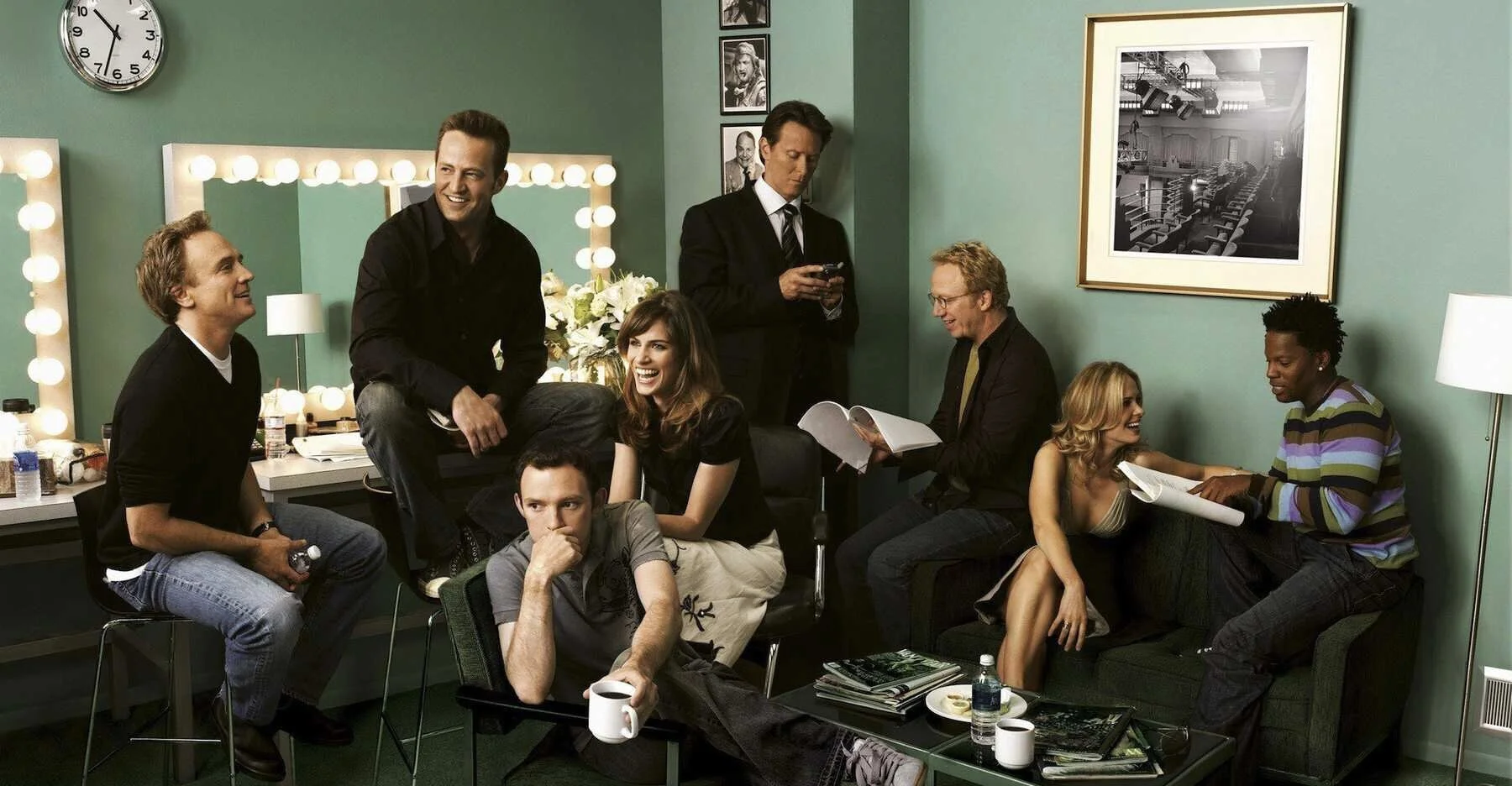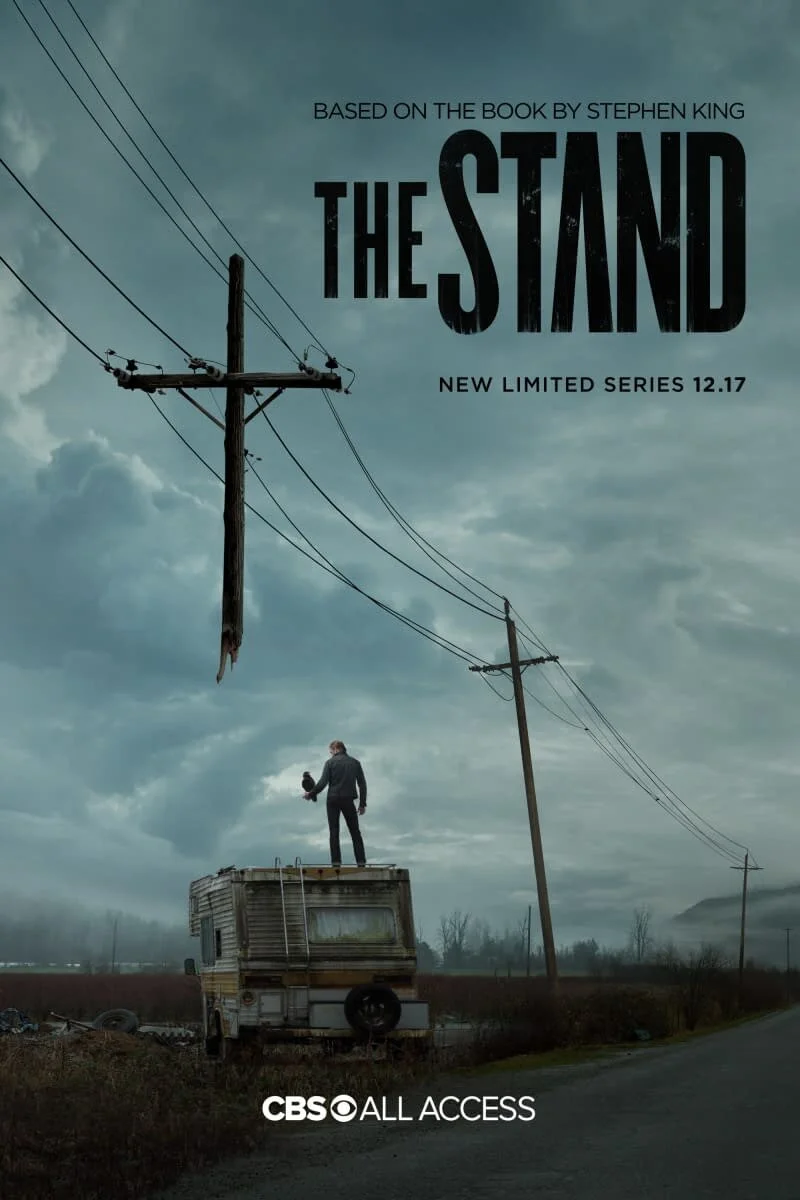Subprime Time: Sorkin’s ‘Studio 60’ Stumbled
Picture this: your last television project is considered one of the greatest of all time. The accolades are countless, the awards nonstop. All of Hollywood is high on you. What do you do as a follow-up, what production do you create next after such success? What do you do now?
Well, whatever the hell you want to do, right? That’s what Aaron Sorkin did back in 2005, when it was announced that his post-West Wing series would be Studio 60 on the Sunset Strip, a show about the inner-workings of a Saturday Night Live-esque comedy show. It was going to be a show about a show. It was going to be a show about the politics of the television industry. It was going to be a show about comedy, talent, entertainment and the people behind-the-scenes.
More than anything, it was going to be a hit.
Studio 60 was one of the most-hyped shows of the 2006 television season. It was a sure thing, bound to be a big hit before the pilot even aired. The West Wing was one of the most successful and critically-acclaimed TV shows of all time and people were breathlessly awaiting Aaron Sorkin’s latest. The idea of him moving from the world of Washington to the world of Hollywood sounded rich with possibility for more fast-talking, witty banter and a deep, intellectual examination of another vital institution: the television industry. NBC was downright joyous about Studio 60. They were already carving out space on their awards shelves for the dozens of golden statues they’d receive.
The first episode of Studio 60 on the Sunset Stip debuted on September 18, 2006 to plenty of fanfare and strong early reviews. The cast consisted of Sorkin regulars and newcomers. It was led by Bradley Whitford of The West Wing and Matthew Perry of Friends. Sarah Paulson, D.L. Hugely, Amanda Peet and Steven Weber were some of the other regulars. The cast had an abundance of talent, as did the people behind the camera who made the show look and feel classy, expensive and high quality. This was a show that felt and looked important. Viewers were definitely curious, 13.4 million of them watched the first episode, though there was a curious drop-off from the first half-hour to the second, suggesting that while many people were intrigued by Studio 60, not a whole lot of them were impressed once they started watching.
Studio 60 was one of those projects that wasn’t good while being expertly made. It was the television equivalent of a Transformers movie: it obviously cost a lot of money and looked brilliant but it was hollow and quite forgettable. That became apparent as the weeks went on and Studio 60 kept turning out lackluster episodes to audiences that were asking “This will get good, right?”
Sadly, no it wasn’t going to get good. The series maintained its ho-hum lackluster quality throughout its run. It’s hard to pinpoint why Studio 60 was bad but it, sadly, has a lot to do with Sorkin himself. He’s a terrific writer, that’s a hill I am willing to die on. But he is a terrific writer in his element and it quickly became clear that making a program about a comedy series was not his element. The fast-talking action and witty back-and-forths came across as sanctimonious and holier-than-thou. It also felt phony, almost laughably unrealistic. People don’t really speak in the the manner Sorkin writes. That’s fine, people also don’t speak in the manner Shakespeare wrote but his work is still classic. But Sorkin’s style of character and dialogue works much better in, say, The White House than the halls of a sketch show. It didn’t fit, it didn’t feel natural. If anything, Studio 60 felt like a parody of Sorkin.
Take this clip, for example. In it, Matthew Perry’s Matt and his team are trying to come up with a “cold open” after scandal rocked Studio 60. All the characters come across as righteous and deadly serious. Would that work on The West Wing? Sure would but it comes across as painfully hammy here. I have never seen people look so dramatic when talking about funny.
The characters were annoying — and forgettable — too. Whitford’s Danny Tripp was essentially Josh Lyman, his West Wing alter ego, tuned down a notch or two. He felt tired, phoned in and over it from episode one. Matthew Perry’s Matt Albie was smug and self-righteous and too smart by half, the essential Sorkin stereotypical character. The same was true for Amanda Peet’s Jordan McDeere, who was so intelligent and so talented and so self-assured that she seemed almost psychotic.
However, the worst character on Studio 60 was, without a doubt, Sarah Paulson’s Harriet Hayes. Harriet was the star of the show-within-a-show. She was also Matt’s ex-girlfriend and a devout Christian. Her religion played a big part of the show, Matt and her butted heads repeatedly. Her faith was played up to an embarrassing level and Paulson portrayed Harriet in a way that made her seem cult-like and a bit unbalanced. I won’t say that’s all her fault, though. Sorkin wrote her into a weird corner. The rumor is that Harriet was based on Kristen Chenoweth, Sorkin’s ex and — wouldn’t ya know it — a very religious woman. After seeing what Sorkin did with Harriet and her religion on Studio 60, I can only imagine why he and Chenoweth never lasted. The part of Harriet and her deeply held beliefs was a heavy-handed mess but it did lead to one of the most memorable and cringe-worthy moments in television history which comes at the end of this clip below. Matthew Perry looking up to the heavens and muttering to God will forever be seared into my brain.
Critics began ravaging the series and especially called out Sorkin for missing the mark when it came to the inner workings of comedy, writing and television. Sorkin’s character were too smart, they said. They felt like West Wing transplants in a different show and it was so inaccurate and oblivious to the reality of comedians and how they worked. Maybe if Sorkin spent more time on the set of Saturday Night Live, maybe if he hired actual comedy writers to work on the scripts, maybe if he took a step back and tried to eliminate the vast similarities to his other work. Maybe if he did all of that, Studio 60 wouldn’t have become a laughing stock. As it was, it quickly became a series that took itself too seriously while audiences couldn’t take it seriously at all.
Because of all these reason, Studio 60 on the Sunset Strip suffered in the ratings. The viewership continued to drop week after week. Episode five had 43% less audience than episode one and the media was speculating that NBC would cancel the series, something that didn’t seem plausible only months before. The dreams for Emmys and Golden Globes were dashed. As the season hit its halfway point, it was just trying to stay alive.
But it didn’t stay alive. During the NBC up fronts on May 11, 2007 Studio 60 on the Sunset Strip was officially canceled after months of speculation. Ironically, the show that was originally seen as a doomed little sister of Studio 60, Tina Fey’s 30 Rock, ended up being the long-lasting, critically-adored hit everyone expected from Sorkin.
Aaron Sorkin would be fine. He ended up reviving his career in a major way when he leapt back to the big screen, eventually winning an Oscar for his work on The Social Network (a stone-cold classic). He would also write Steve Jobs (another stone-cold classic) and is already getting awards buzz for his upcoming The Trial of the Chicago 7, which he also directed. See, Sorkin found success again when he created projects that his character felt right in. The Social Network, Steve Jobs and The Trial of the Chicago 7 are productions that feel appropriate for his dialogue and scripting. They are perfectly in his wheelhouse. Even The Newsroom, his oft-ridiculed HBO series that lasted three seasons, was a good fit for Sorkin. Those are the types of stories that you expect the walking-and-talking, the quick-witted conversations and the characters who seem smarter than anyone you’ve ever met. It makes sense there, it didn’t make sense in Studio 60.





